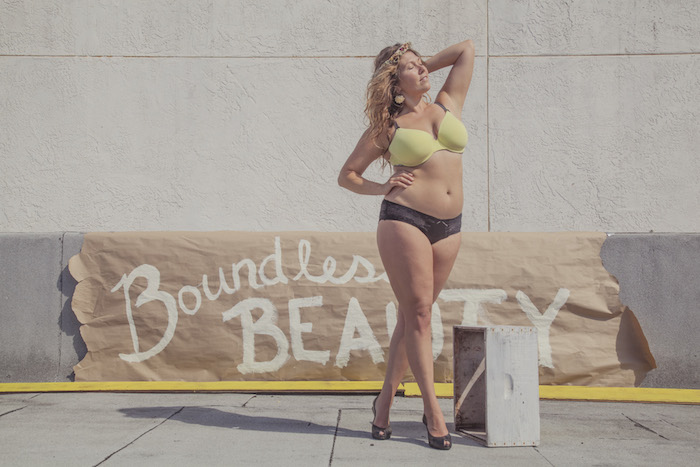As a culture, our personal identity is strongly shaped by the media.
Most Americans have grown up inundated with persuasive media advertisements shaping our sense of self from a young age. Unfortunately, instead of cultivating in us a sense of strength and self-love, the majority of the messages we consume are designed to make loyal consumers out of us by selling us the belief of our own inadequacy and lack.
But we are now poised for a shift. Never before have we, as individuals, had the opportunity to harness the power of the media as we do today. And one of the most exciting aspects of this power shift lies in the revolution in how we come to relate to, care for and value our bodies. Yes, The Body-Snatcher Hack is upon us.
Read on:
The Body-Snatcher is a term used to describe the powerful and pervasive influence that the media has over nearly every aspect of our lives, specifically, its ability to influence how we feel about our bodies.
Body image has become a dominant force in our socialization and how we come to understand and respect ourselves. When we complacently consume messages sent out by corporate America about how our bodies should be, we allow the consumer mentality to dictate our relationships to our bodies.
But rather than try to overpower big corporate media by traditional means of outspending, we now collectively have the ability to take a more artful path of less resistance and choose to redefine the media ourselves. Thanks to advances in technology, social media and open-source journalism, we have the agency to do just that. Lets take back the media. Lets take back our bodies. Lets hack the Body Snatch.
First, A few definitions: Body shame and body love.
Body love is the extraordinary practice of loving one’s body as it is NOW. Not the body of an imagined future or a nostalgic past. Not a body that is modified, hidden or camouflaged. The body we love is the body we inhabit right now, in this moment.
Body shame is the act of criticizing the body, especially in reference to other bodies, or in comparison to an invented cultural ideal. Body Shaming reinforces the belief that body is a measure of one’s self-worth and creates a pathology in which we see our bodies as separate from ourselves.
The modern obsession with the body occupies significant real estate in the minds of many. In a culture so full of distractions and energy-draining activities, we cannot afford to lose any more time and potential creative productivity. I believe that learning to love and accept our bodies would free up an immense amount of creative potential in our society?
Now finally, for the first time in mainstream American media, demands are being put upon the industry to more adequately represent diverse body types, specifically in fashion and television. As these new messages permeate the media, people are encouraged to embrace, accept and care for their bodies in a new way. With this we see the rise of the “plus-size” model, and particularly through social media channels, celebration of curves, “imperfections” and diversity in body type and body weight.
The largest criticism this movement sees is the questioning of the safety of promoting the celebration of bodies that some consider overweight, or who truly are overweight by medical standards.
My answer to that is two fold:
1) The diversity of shape and size of a healthy body varies widely and ultimately each individual has the authority to decide if they are healthy as they are.
2) For those who are overweight, the first step to lasting weight loss and lifestyle change is self-acceptance and finding the strength to be with the body as it is now.
We cannot shame ourselves into being loveable.
When we habitually relate to our bodies through shame, we feel trapped within the body, as if we are perpetually trying to escape our physicality. Over time, this learned behavior has a detrimental effect on our spiritual, emotional and psychological well-being.
Many of us know that cultural body ideals (for women in particular) shift dramatically throughout time. The travesty is that, although we can make changes in our diet and exercise regimens, we cannot defy our biology in order to reflect whatever happens to be in vogue in any given decade. Think Marilyn vs. Twiggy. Or, in a more modern example, Tyra Banks vs. Coco Rocha.
So where did we pick up the damaging habit of body shaming?
We learn to shame the body; this is a behavior that we pick up early on in life, hearing our parents and other adults, criticize their own bodies. And of course, the most damaging body shaming has come via the airbrushed and eroticized images of men and women disseminated by the media.
If left uninfluenced, would a child invent the idea that the body is not good enough or somehow greatly flawed Comparison, competition and the idea of imperfection are very much an invention of the human mind, and unfortunately one that our society has long espoused as truth.
So what do we do, and how do we change? We choose.
We can choose what to give our attention to. So instead of devoting time to self-loathing and self-criticism, we can choose body love and a reality that says we are worthy and acceptable and loveable. We each have to take responsibility to reprogram our minds to focus on self-care rather than self-sabotage.
We may have learned body shame, but we can unlearn it through the power of choice.
Yes, developing body love entails devoted compassion and radical self-acceptance. Yes, it entails commitment, a sort of discipline that must come from within. But if we are committed to creating a culture of powerful, creative and healthy individuals, the celebration of body diversity must become second nature.
Relephant read:
Mindfulness Meditation to Transform our World.
Author: Chantal Peterson
Editor: Catherine Monkman
Photo: Author’s Own



Read 3 comments and reply